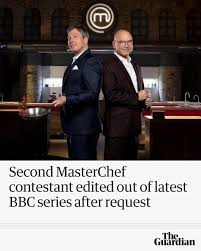
Introduction
The long-running television show MasterChef has become a staple in competitive cooking showcases, attracting a large audience with its culinary challenges and intense kitchen drama. However, recent discussions have emerged regarding the editing choices made by producers, particularly with respect to certain contestants being edited out of episodes. This has raised questions about transparency in reality television and the portrayal of contestants’ journeys on the show.
Edit Choices and Their Implications
During the current season of MasterChef, several fans have noted that certain contestants have been noticeably absent from key episodes despite being active participants in the competition. The editing out of contestants can occur for various reasons, including narrative pacing or the desire to centre the story around more prominent personalities within the competition. Production teams aim to create a compelling storyline that keeps viewers engaged, which may sometimes result in the sidelining of contestants who do not fit the current narrative arc.
For instance, producers might opt to focus on stronger personalities or contestants who are more dramatically involved in the competition. In some cases, contestants may have been eliminated early, or their journeys may not have aligned with the overall theme of specific episodes. A recent episode aired without mention of a competitor who had previously shown promise, leading fans to speculate on the editing decisions made behind the scenes.
Viewer Response and Community Discussion
The editing out of contestants has led to significant viewer backlash, with many fans taking to social media platforms to express their frustrations. Fans argue that editing decisions may present a skewed view of the competition and detract from the experiences and talents of all participants. The nature of reality television relies heavily on viewer perception, and when shows choose to edit certain storylines, it can influence how contestants are remembered or perceived by the audience.
This aligns with ongoing debates about representation and fairness in reality TV. Participants who are edited out may find themselves at a disadvantage, as they have less opportunity to showcase their skills and personalities to the viewing public. Furthermore, they may face challenges in post-show opportunities, where recognition can be key to career advancement in the culinary world.
Conclusion
As reality television continues to evolve, the editing choices made by shows like MasterChef will remain a topic of interest and concern among viewers. The importance of a balanced representation of all contestants cannot be overstated. Productions should consider the long-term effects of these editing decisions, both on contestants’ careers and on viewers’ perceptions of fairness. Moving forward, audiences hope to see a more inclusive and transparent approach to storytelling that better represents the diverse talents of all the MasterChef contestants.
You may also like

Ciaran from Love Island: Age and Background Insights

When Will Love Island All Stars 2026 Air?
